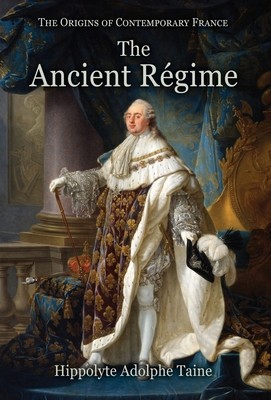
- We will send in 10–14 business days.
- Author: Hippolyte Adolphe Taine
- Publisher: Hounskull Publishing
- Year: 2019
- Pages: 846
- ISBN-10: 1910893013
- ISBN-13: 9781910893012
- Format: 14 x 21.6 x 5.1 cm, kieti viršeliai
- Language: English
- SAVE -10% with code: EXTRA
Reviews
Description
Hippolyte Taine's fame as a historian rests on his monumental six-volume work, The Origins of Contemporary France, an effort to understand the France of his day undertaken after her defeat in the Franco-Prussian War of 1870 and the horrors of the Paris Commune of 1871. The Ancient Régime is the first volume. Drawing from memoirs, diaries, correspondence, archival material, and the arts, he performs a systematic examination of pre-revolutionary France, beginning with the royalty and aristocracy, passing through the clergy, the middle class, and the peasantry, and ending with the army. In a highly entertaining and readable narrative endowed with outstanding literary qualities, Taine provides an abundance of facts, which richly illustrate, with pyrotechnics and breadth, the long suicide of the ancien régime--structural, cultural, moral, intellectual, and economic--showing how this cadaverous entity laid the foundations for the French Revolution. Taine was known for his stubborn intellectual independence and scepticism towards then fashionable ideas, and this is evident in the present survey, where he exempts no one from responsibility in the concussion that followed. Long neglected in the English-speaking world, his unique historical perspective is tough and incisive, at once picturesque and contemplative, and stands, along with Burke's and de Maistre's, as an important articulation of the conservative view, contrasting sharply against contemporaneous histories by Michelet, Thiers, and Mignet and the later Marxist (or 'classic') interpretations given prominentce during the first half of the 20th century.
EXTRA 10 % discount with code: EXTRA
The promotion ends in 22d.13:07:22
The discount code is valid when purchasing from 10 €. Discounts do not stack.
- Author: Hippolyte Adolphe Taine
- Publisher: Hounskull Publishing
- Year: 2019
- Pages: 846
- ISBN-10: 1910893013
- ISBN-13: 9781910893012
- Format: 14 x 21.6 x 5.1 cm, kieti viršeliai
- Language: English English
Hippolyte Taine's fame as a historian rests on his monumental six-volume work, The Origins of Contemporary France, an effort to understand the France of his day undertaken after her defeat in the Franco-Prussian War of 1870 and the horrors of the Paris Commune of 1871. The Ancient Régime is the first volume. Drawing from memoirs, diaries, correspondence, archival material, and the arts, he performs a systematic examination of pre-revolutionary France, beginning with the royalty and aristocracy, passing through the clergy, the middle class, and the peasantry, and ending with the army. In a highly entertaining and readable narrative endowed with outstanding literary qualities, Taine provides an abundance of facts, which richly illustrate, with pyrotechnics and breadth, the long suicide of the ancien régime--structural, cultural, moral, intellectual, and economic--showing how this cadaverous entity laid the foundations for the French Revolution. Taine was known for his stubborn intellectual independence and scepticism towards then fashionable ideas, and this is evident in the present survey, where he exempts no one from responsibility in the concussion that followed. Long neglected in the English-speaking world, his unique historical perspective is tough and incisive, at once picturesque and contemplative, and stands, along with Burke's and de Maistre's, as an important articulation of the conservative view, contrasting sharply against contemporaneous histories by Michelet, Thiers, and Mignet and the later Marxist (or 'classic') interpretations given prominentce during the first half of the 20th century.


Reviews